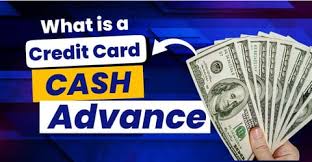Can a Cash Advance Help Build or Hurt Your Credit History?
Can a Cash Advance Help Build or Hurt Your Credit History?

Introduction
Money problems can show up when you least expect them. Maybe your car breaks down, or you have to pay a bill before payday. In times like these, a cash advance might seem like a quick and easy way to get money fast. But before taking one, it’s important to understand how a cash advance can affect your credit history. Does it help you build credit or can it actually hurt it? The truth depends on how you use it, how quickly you pay it back, and whether you understand the terms of the loan.
Your credit history is like a report card for your financial life. Lenders look at it to decide if you’re responsible with money. So, anything you do that involves borrowing—like taking a cash advance—can influence that record in positive or negative ways. In this article, we’ll explore how cash advances work, their impact on your credit, and what smart borrowers can do to protect or even improve their financial reputation.
Understanding What a Cash Advance Really Is
A cash advance is a short-term loan that gives you access to money quickly, often through your credit card or a payday loan service. When you take a cash advance from your credit card, you’re basically borrowing against your credit limit. The money can be withdrawn from an ATM or bank, but it usually comes with high fees and interest rates.
Unlike regular purchases on a credit card, cash advances begin charging interest immediately. There’s no grace period, and interest rates can be much higher than what you pay for normal purchases. For example, while your card might charge 20% interest on purchases, it could charge 30% or more for a cash advance. That means you’ll owe more money the longer you take to pay it back.
How a Cash Advance Can Impact Your Credit Score
Your credit score is a number that shows how trustworthy you are as a borrower. When you take out a cash advance, the lender reports your activity to credit bureaus. This can affect your score in different ways. If you take out too much or fail to repay it quickly, your score could drop. High balances make it look like you depend too much on credit, which lenders see as risky behavior.
However, if you handle a cash advance carefully and make timely payments, it may not hurt your score. In some cases, it could even help your credit history by showing you can manage short-term debt responsibly. The key is to borrow only what you truly need and pay it back quickly to minimize interest and maintain a healthy credit utilization ratio.
The Hidden Costs of Taking a Cash Advance
Even though a cash advance seems like fast money, it often comes with hidden costs that can make things worse in the long run. The biggest issue is the high interest rate. You start paying interest from the day you withdraw the money, unlike a regular credit card purchase that might offer a grace period. This makes cash advances one of the most expensive types of borrowing.
Another hidden cost is the transaction fee. Most credit cards charge around 3% to 5% of the amount you withdraw as a cash advance fee. So if you take out $500, you could owe $25 right away, on top of the high interest that begins to build. Over time, these costs can grow quickly, making it harder to pay off the balance and potentially leading to more debt.
When a Cash Advance Might Hurt Your Credit History
A cash advance can hurt your credit history if you don’t manage it carefully. One major reason is the increased credit utilization rate. This rate measures how much of your available credit you’re using. For example, if you have a $1,000 credit limit and take a $500 cash advance, you’ve used 50% of your credit. Experts recommend keeping that number below 30% to protect your credit score.
Missed or late payments are another major risk. If you fail to repay the cash advance on time, your credit card issuer may report it as a delinquency. Late payments can stay on your credit report for years, lowering your score and making it harder to qualify for future loans or credit cards. In some cases, taking too many cash advances can also make lenders think you’re facing financial trouble, which may reduce your creditworthiness.
When a Cash Advance Might Help Your Credit History
Not all effects of a cash advance are negative. In some cases, using it wisely can show lenders that you are capable of managing short-term credit. For example, if you borrow a small amount and repay it quickly, you demonstrate financial discipline. This can have a small positive impact on your credit history over time.
Additionally, if you’re using a cash advance to avoid missing an important payment—like rent or a utility bill—it could protect your credit indirectly. Missing bill payments can hurt your score, so a temporary loan might help you avoid that situation. However, this strategy only works if you repay the cash advance quickly to avoid high interest charges and further financial strain.
Smart Alternatives to Taking a Cash Advance
Before taking a cash advance, it’s worth considering safer alternatives. Building an emergency fund is one of the best ways to handle unexpected expenses. Even saving a few dollars a week can create a safety net that keeps you from borrowing under pressure. You can also look into personal loans, which often have lower interest rates than cash advances and more manageable repayment plans.
Another alternative is asking your credit card issuer for a temporary credit limit increase or hardship program. Some companies offer these options for customers facing financial struggles. Using these programs may prevent you from needing a cash advance, protecting your credit score and saving you money on interest and fees in the long run.
Tips to Use a Cash Advance Responsibly
If you decide to use a cash advance, make sure to use it wisely. Borrow only what you truly need and avoid using it for non-urgent expenses. Treat it as a short-term emergency option, not a regular source of money. The sooner you pay it back, the less interest you’ll owe, and the less likely it will harm your credit.
It’s also a good idea to set up automatic payments or reminders to make sure you never miss a due date. Monitoring your credit report regularly can help you see how your borrowing affects your score. Responsible use of a cash advance can minimize damage and even show lenders that you handle credit thoughtfully.
Conclusion
So, can a cash advance help build or hurt your credit history? The answer depends on how you use it. A cash advance is not automatically bad for your credit, but it’s a risky form of borrowing that requires caution and discipline. If you repay it quickly, keep your credit utilization low, and avoid taking multiple advances, it might not harm your score at all.
On the other hand, if you take large cash advances, pay them back slowly, or miss payments, your credit score will likely drop. The high interest and fees can trap you in debt, making it harder to manage your finances. The best approach is to view a cash advance as a last resort, not a routine financial tool. By staying informed and using credit responsibly, you can protect—and even strengthen—your financial future.



